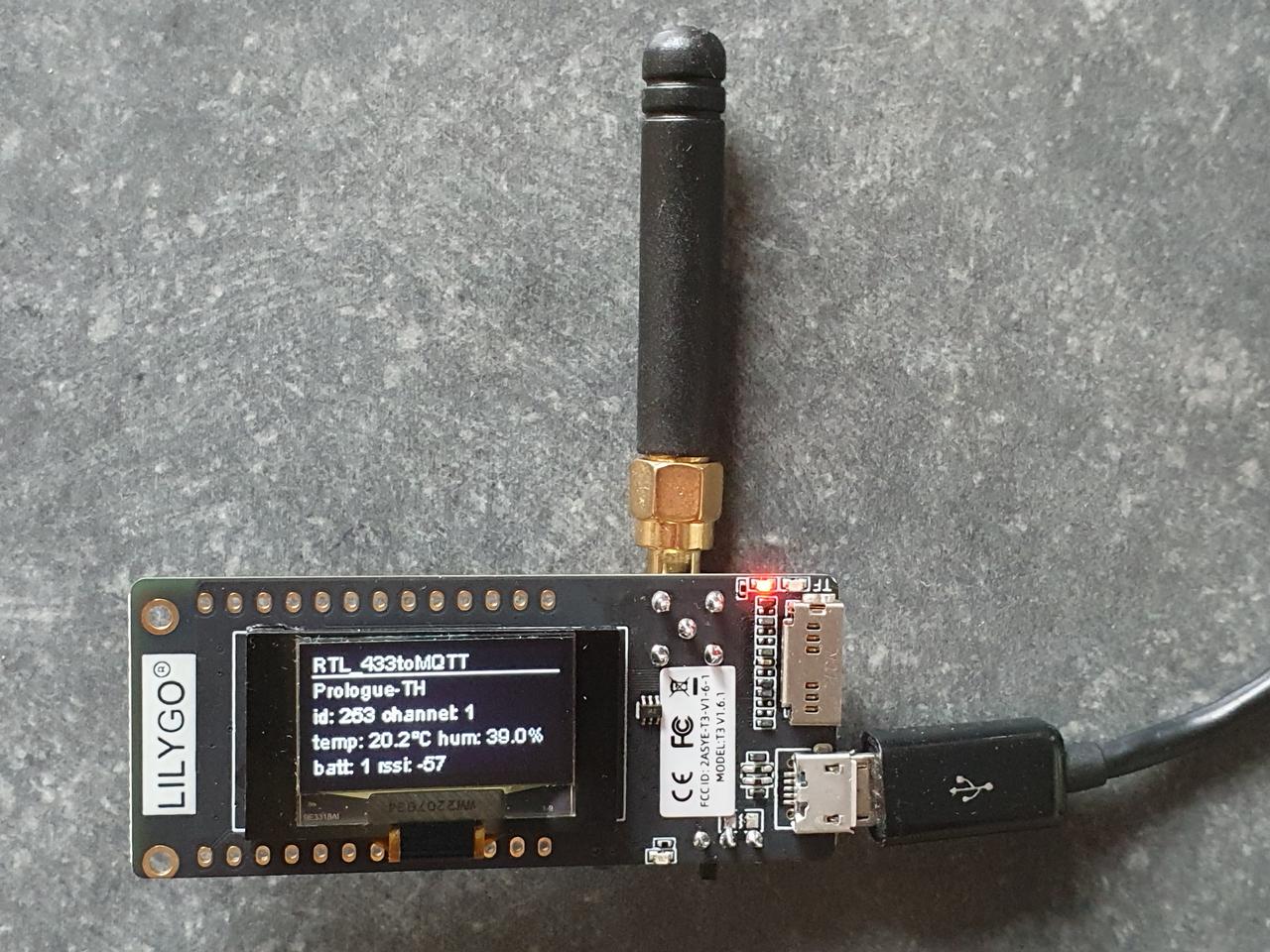Using low-cost 433.92 MHz wireless sensors
When it comes to home automation, people often end up with devices supporting the Zigbee or Z-Wave protocols, but those devices are relatively expensive. When I was looking for a way to keep an eye on the temperature at home a few years ago, I bought a bunch of cheap temperature and humidity sensors emitting radio signals in the unlicensed ISM (Industrial, Scientific, and Medical) frequency bands instead. Thanks to Benjamin Larsson's rtl_433 and, more recently, NorthernMan54's rtl_433_ESP and Florian Robert's OpenMQTTGateway, I was able to integrate their measurements easily into my home-automation system.
I wrote an article for LWN.net describing these projects and what you need to integrate them into your home-automation system such as Home Assistant: Using low-cost wireless sensors in the unlicensed bands. The article also describes how I'm migrating from a Raspberry Pi-based setup with RTL-SDR dongle running rtl_433 (as described in my home automation book Control Your Home with Raspberry Pi) towards a more distributed setup with multiple LILYGO boards with 433 MHz receiver and running the OpenMQTTGateway firmware around the house. They have less range than the RTL-SDR dongle, but they are cheap and all send their decoded sensor values to the same MQTT broker, so the result is the same as having a single receiver with a longer range.

The article doesn't go into detail about rtl_433_ESP, but this is a fairly recent and interesting development. While rtl_433 implements signal demodulation in software, rtl_433_ESP uses the transceiver chipset (SX127X on the LILYGO LoRa32 V2.1_1.6.1 433MHz board) to do this. This makes the ESP32 implementation more limited in the signals it can receive, because the transceiver only supports a single modulation scheme at a time. As NorthernMan54 had a lot of devices with OOK (on-off keying) modulation at the time he started the port and not one with FSK (frequency-shift keying) modulation, OOK devices are currently the only ones supported. More specifically, rtl_433_ESP supports rtl_433's Pulse Position Modulation (OOK_PPM), Pulse Width Modulation (OOK_PWM) and Pulse Manchester Zero Bit (OOK_PULSE_MANCHESTER_ZEROBIT) demodulation modules. This limits the available device decoders to 81 of the 234 decoders of rtl_433.
There are other microcontroller implementations of decoders for 433 MHz sensors, but the work NorthernMan54 has done building on rtl_433's code base and making it easy to use it with OpenMQTTGateway is impressive. NorthernMan54 told me he created some scripts that should help automate the port and keep his code synchronized with the roughly annual release cycle of rtl_433.